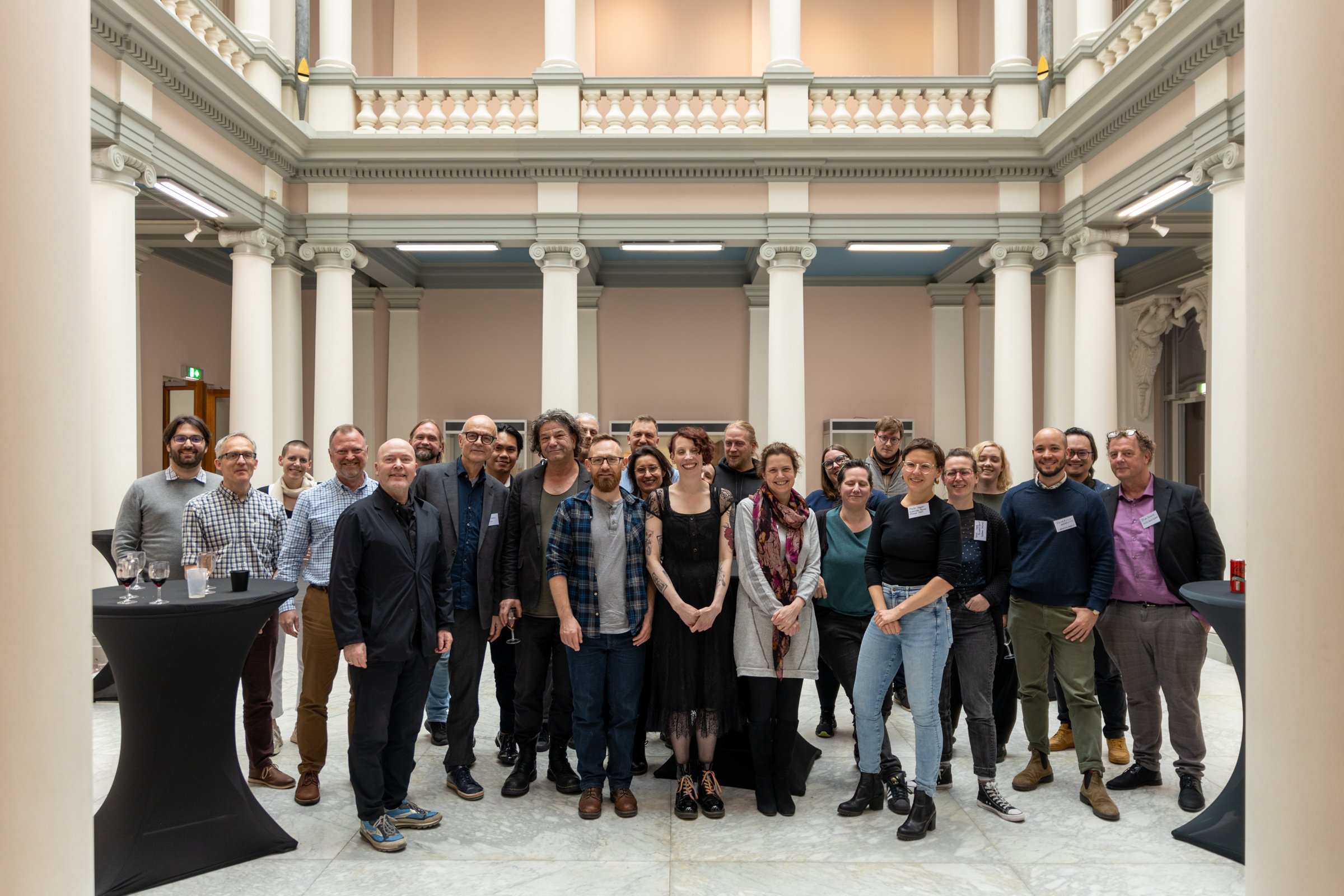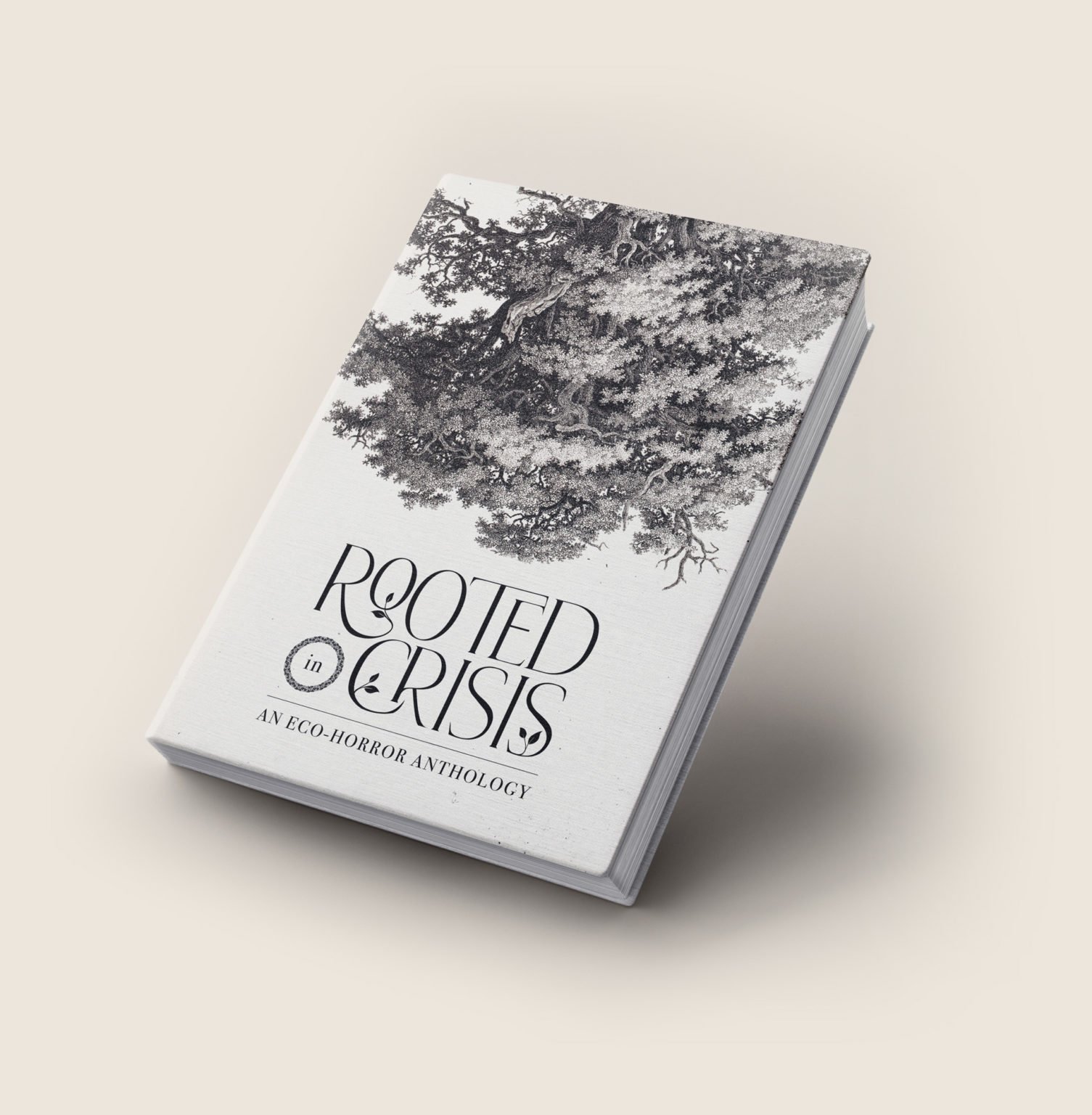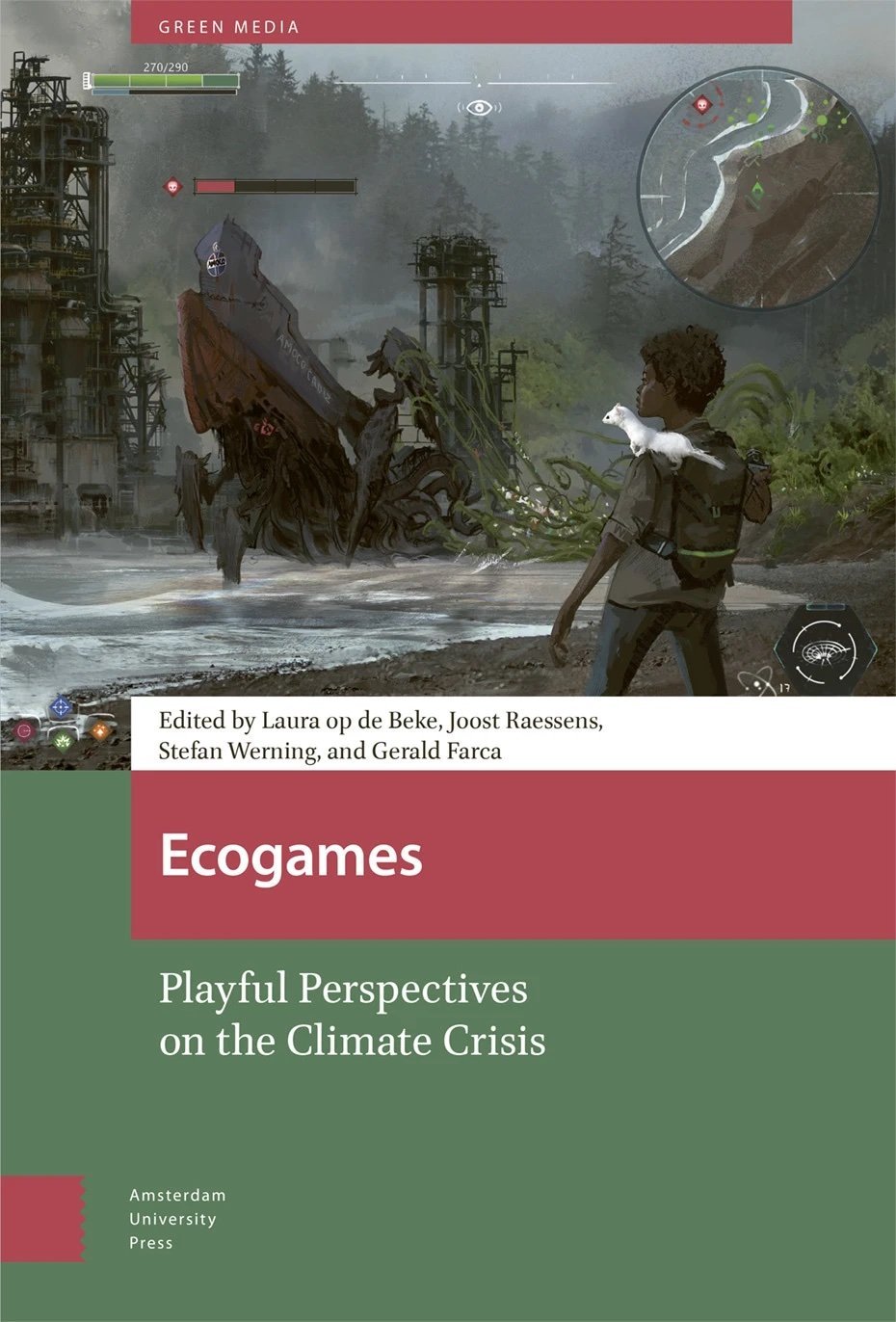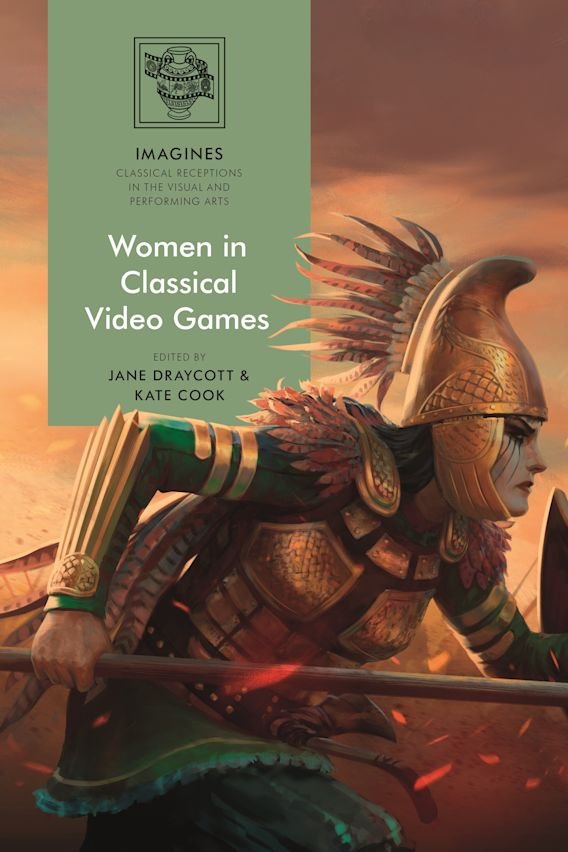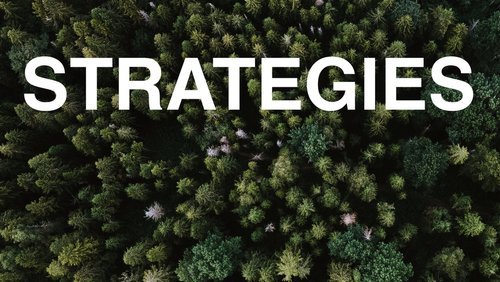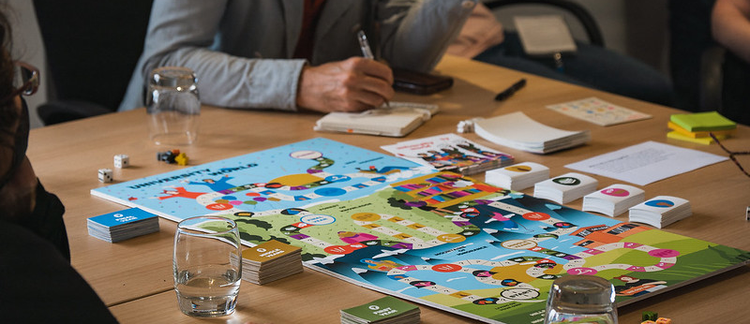This week saw the launch of our Horizon Europe/UKRI-funded project STRATEGIES (Sustainable Transition for Europe’s Game Industries). The event took place at Utrecht University on the 17th and 18th of April, bringing together many of the colleagues from the NGOs, game companies, and universities that make up the STRATEGIES consortium. We were also delighted to welcome colleagues from two of Horizon-funded sister projects, PACESETTERS (Powering Artistic and Cultural Entrepreneurship to Drive the Climate Transition) and CRAFT IT 4SD (Craft Revitalization Action for Future-proofing the Transition to Innovative Technologies for Sustainable Development).
Read MoreOn Wednesday 20th March people gathered at O! Peste Destroyed in Manchester’s Northern Quarter for an evening of mind games. The evening was a collaboration between the MGC and the Dark Arts Research Kollective, who have just launched their latest zine presenting their arts-based research approaches into occultural practices, fortean geographies and paranormal resonances. MGC’s Chloé Germaine hosted the event, launching a new research project into the intersection between games and the occult phenomena of ‘mind’.
Read MoreIn anticipation of the 2024 League of Legends World Finals in London, the Esports Research Network is excited to announce that #ERNC2024 is to set to take place this October-November in London! Under the evocative theme ‘Where Worlds Collide,’ this year's conference aims to explore the dynamic intersections between gaming cultures, esports competitiveness, technological innovation, and the broader societal impacts of the digital and physical worlds merging.
Where Worlds Collide is a collaborative effort between The Manchester Metropolitan University and Staffordshire University.
Read MoreThe Manchester Game Centre are delighted to announce our keynote speakers for 2024’s Multiplatform symposium! Our annual symposium is focussed this year on queer games and playful protest, examining the intersection of games and dissent in multiple forms. Find out more here. The call for papers closes on March 29th - see below for details on how to submit your abstract.
Read MoreMultiplatform 2024: Queer Games and Playful Protest
Tuesday 11th and Wednesday 12th June
Multiplatform is the annual symposium for the Manchester Game Centre. We are a cross-university research group at Manchester Metropolitan University with research interests in Analogue Games, Digital Arts, Esports, Games and the Environmental Crisis, Games, History and Heritage, Games and Storytelling, and Serious Games.
Multiplatform 2024 has a dual focus on analogue and digital games and is themed around a concern with queer and dissident games and gaming practices. In addition to a day of academic and industry talks on the theme of queer gaming, we will also be hosting the UK Game Lab Network annual meet-up and launching our retro gaming archive, which contains computers and consoles from the past 40 years, together with a range of games. The activities will also include an introduction to the Archive and its future.
Read MoreIntroduction
Esports teams are in crisis, struggling with a range of issues, including player and staff burnout, financial instability, brand and reputation mismanagement, poor talent acquisition and retention, inefficiencies in team communication and organisation, and a lack of diversity and equality within esports organisations. This special issue of Team Performance Management is directed toward constructing an in-depth understanding of how to build sustainable esports teams. The principal objective is to invite articles that unravel the multifaceted and multidisciplinary aspects of managing esports teams with a view to foster longevity and success in highly competitive environments. Through this lens, this special issue encourages researchers to explore pioneering strategies, management paradigms, and governance structures that are vital for sustainability in esports. This exploration extends to the examination of the welfare of players and staff, sustainable business and governance models, positive and effective team dynamics, and policies that foster diversity and ensure inclusive and equitable team environments for esports players.
Read MoreManchester Game Centre co-director, Chloé Germaine, has been working with a team of game designers, climate scientists and activists on a new creative project, Rooted in Crisis. Rooted in Crisis is a An Eco-Horror
Game Anthology for tabletop play. It is rules-light, focussed on storytelling and rooted in the award-winning horror game, Trophy - designed by Jesse Ross.
What makes polarization a problem in the democratic classroom, and how do we reclaim the classroom as a place for political agency? In this working paper, Manchester Game Centre member, Benjamin Bowman explores an approach to role-play in the classroom. Ben considers roleplay as a form of experiential learning that can challenge unhelpful polarization and help develop inclusive, participatory and deliberative classes. The paper suggests ways that educators can develop their own participatory and deliberative role-plays.
Read MoreMGC researchers have been working on and contributing to a large-scale project on games and climate change since 2021, exploring the idea of ‘ecogames’ with colleagues across Europe and beyond. The latest work to come out of this collaboration is a collection of essays, Ecogames: Playful Perspectives on the Climate Crisis. The book has been published by Amsterdam University Press this month.
According to the volume editors, ‘with the climate crisis and its repercussions becoming more and more tangible, games are increasingly participating in the production, circulation, and interrogation of environmental assumptions, using both implicit and explicit ways of framing the crisis. Whether they are providing new spaces to imagine and practice alternative forms of living, or reproducing ecomodernist fantasies, games as well as player cultures are increasingly tuned in to the most pressing environmental concerns.’
Read MoreThe past few years has seen an explosion in the number of volumes dedicated to the study of the ancient world—specifically Greece and Rome—in video games. Women in Classical Video Games, edited by Jane Draycott and Kate Cook, is the second edited volume by Draycott in as many years (following from Women in Historical and Archaeological Video Games) and the third volume on the ancient world and video games published by Bloomsbury in their Imagines series.[1] Comprising fifteen chapters, Women in Classical Video Games is a timely publication that addresses public responses to the inclusion of female characters in classical games and highlights the issues surrounding the presentation of women in them. And a wide range of games is discussed, from big studio games (Assassins Creed Origins and Odyssey) to independent games (Apotheon), from the 1980s to recent years, whether on console, PC, or mobile (Choices: A Courtesan of Rome), and a broad range of game genres. As such, while the volume will primarily be of interest to those studying ancient Greece and Rome, especially their modern receptions, there is also much of value to developers working on games set in these worlds, in a hope that they will avoid the stereotypical tropes that so often plague female characters.
Read MoreYami Kurae is an artistic project by Matteo Polato and Jacopo Bortolussi. It started around 15 years ago as a noise & radical improvisation music duo, with a strong focus on the reuse of obsolete and malfunctioning media, and on how low fidelity can convey atmosphere, imagination and lore. It later evolved into composing music for film and theatre, such as the music score for the multimedia Noh theatre version of Ghost in the Shell (dir. Shutaro Oku, premiered in 2020 at Setagaya Theatre, Tokyo). Recently, our passion and research interest in gaming brought the project to new territories, while retaining the strong focus on media fidelity and experimental narratives. The output of this new path is called Real Engine. As of today, Real Engine is composed of a sort of manifesto, published as part of the first publication of the DⱯRK – Dark Arts Research Kollective.
Read MoreManchester Game Centre member Dr Jenny Cromwell recently had the opportunity to interview Dr Abraham I. Fernández Pichel, from the Universidade de Lisboa, about the research project that he leads, Egypopcult, which examines how ancient Egypt is represented in contemporary popular culture – including games!
Read MoreFor the Horizon project STRATEGIES (Sustainable TRAnsiTion for Europe’s Game IndustriES) we are looking for an enthusiastic and experienced project manager to support research on how the European game industry can contribute to realizing the goals of Europe’s Green Deal.
Read MoreSTRATEGIES is the short name for the Horizon Europe funded project Sustainable Transition for Europe’s Game Industries. The project will support Europe’s game development industries in making vital changes to their business and production practices in support of reaching the emissions targets of the European Green Deal. Staff at the Manchester Game Centre will be co-leading this project with researchers at Utrecht University from February next year.
Read MoreLanguage, Equality, and Gaming – LEG project
Although significant work has being done to address inequalities in videogames, many analyses of videogame data typically stay at a visual level. One area which has received little attention is that of how language contributes to sustaining prejudices (though, see Heritage, 2021, 2022; Rennick & Roberts, forthcoming). While a number of videogame companies have Equality, Diversity, and Inclusion (EDI) leads and EDI training for all staff, there are still all too often implicit biases (in the form of language) which persist, leading to unconscious bias still being included in videogames when dialogue is written, items are described, and in how characters are represented. For example, female characters might only ever occur with words which denote their mental abilities or intelligence, while male characters might regularly occur with words denoting their physical strength and muscles. Although such representations are less obvious, they are nevertheless equally problematic, and often EDI teams do not have the necessary tools nor training to identify these inequalities.
Read MoreIn June this year, Manchester Game Centre hosted its third annual symposium, Multiplatform. This year, the symposium asked players, gamers, makers, and critics to think about the sustainability of games, play, and the gaming industries.
Read MoreManifestations of Queerness in Video Games positions video games alongside queer fixtures, such as drag, cyborgs, sissies, flânerie, monsters, and the latent homoeroticism of wrestling. Together with Bonnie Ruberg’s (2019) Video Games Have Always Been Queer, Gaspard Pelurson’s monograph serves to become a foundational text in the now flourishing discourse of queer game studies. Video games are typically understood through mastery, competition, capital, and production; however, through queer thinking, they become sites of hope, failure, fragility, and erotics. Where Ruberg proves there is queerness in every game and every game can be queered, Pelurson presents queer manifestations, how you might find them, and how subversive, disruptive, and arousing they can be should you catch a glimpse.
Read MoreManchester Game Centre member Dr John Lean introduces the special issue of The Journal of Play in Adulthood that he has recently edited.
Read MoreThis year the Manchester Game Centre piloted its (Re)making Games: Creativity, Play, Communication MA (master’s) course for students of the Manchester Writing School and SODA.
The course explores the theory and practice of hacking and (re)making games as a research method and mode of creative practice. We introduced students to game making as a new methodology that combines creative and critical thinking with public engagement and impact at the point of research. For creative writers, the unit helps students develop new ways to explore narrative and storytelling through interactive fiction, video games and analogue games.
The games students produced were engaging, thoughtful, and exciting examples of intentional design and we wanted to share a few of them here…
Read MoreMGC member, Catherine Elkin, has developed a student project to support storytelling, communication and coding skills. This project aims to pair students interested in code with other students interested in storytelling to create text-based adventure games.
Read More